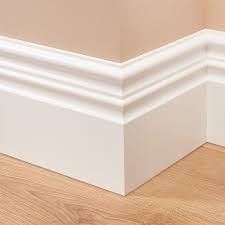Ready made wall panels have revolutionized interior design, offering homeowners and designers an instant solution for creating feature walls, adding texture, and transforming spaces without the mess and expense of traditional construction. With countless options now available, selecting the perfect panels requires careful consideration of several key factors. This comprehensive guide will help you navigate the selection process to find panels that deliver both aesthetic appeal and practical performance.
Understanding Panel Materials
The foundation of your decision begins with material selection, as each type offers distinct advantages:
MDF (Medium-Density Fiberboard) Panels
-
Ideal for painted finishes and crisp, detailed profiles
-
Excellent for creating classic wainscoting, shaker styles, or geometric patterns
-
Provides a smooth, uniform surface that accepts paint beautifully
-
Most cost-effective option for detailed designs
-
Best suited for dry areas only
PVC and Vinyl Panels
-
Perfect for moisture-prone areas like bathrooms, kitchens, and basements
-
Resistant to mold, mildew, and water damage
-
Often feature interlocking systems for seamless installation
-
Easy to clean and maintain
-
Available in designs mimicking wood, tile, or stone
Natural Wood Panels
-
Offer authentic grain patterns and warmth
-
Can be stained or painted to match your decor
-
Typically more expensive than engineered options
-
Require more maintenance than synthetic alternatives
-
Include options like reclaimed wood, shiplap, or tongue-and-groove systems
3D Wall Panels
-
Create dramatic sculptural effects
-
Made from various materials including MDF, PVC, or polyurethane
-
Excellent for creating focal points in contemporary spaces
-
Can incorporate lighting for enhanced visual impact
-
Range from subtle textures to bold geometric statements
Key Selection Criteria
Room Function and Conditions
Consider the practical demands of your space:
-
High-moisture areas (bathrooms, kitchens): Choose waterproof PVC or vinyl
-
High-traffic zones (hallways, entryways): Durable MDF or wood withstands impacts
-
Living areas and bedrooms: Any material works, depending on your aesthetic preference
-
Spaces requiring acoustical control: Look for panels with sound-absorbing properties
Aesthetic Compatibility
Your panels should complement your existing decor:
-
Traditional interiors: Consider raised panel, beadboard, or classic wood planking
-
Modern spaces: Opt for 3D geometric patterns, sleek slat walls, or minimalist designs
-
Transitional decor: Simple shaker styles or subtle textured panels bridge style gaps
-
Industrial aesthetic: Panels mimicking concrete, brick, or metal work well
Installation Considerations
Evaluate the practical aspects of installation:
-
Interlocking systems: Simplest for DIY installation, often requiring minimal tools
-
Adhesive-backed panels: Quick application but less forgiving of wall imperfections
-
Panelized systems: May require more precise measuring and cutting
-
Weight considerations: Lighter panels are easier to handle and require less robust mounting
Budget and Quality Balance
-
Establish your budget before shopping
-
Remember to factor in additional costs for adhesives, trim, and finishing supplies
-
Higher-priced panels often offer better durability and more realistic finishes
-
Consider the long-term value rather than just initial cost
Practical Evaluation Steps
1. Request Samples
Always examine physical samples before purchasing:
-
Check color accuracy under your room’s lighting conditions
-
Assess the quality of finish and edge details
-
Verify the weight and feel of the material
-
Test how the sample takes paint if you plan to customize
2. Measure Precisely
-
Calculate your total square footage, adding 10-15% for waste and pattern matching
-
Note the dimensions of each panel to minimize cutting and waste
-
Consider how panel sizes will work with your wall dimensions
3. Research Installation Requirements
-
Review manufacturer instructions before purchase
-
Ensure you have the necessary tools and skills
-
Consider whether you’ll need professional assistance
-
Check if the panels require special primers or adhesives
Style-Specific Recommendations
For a Modern Farmhouse Look:
-
White shiplap-style MDF panels
-
Simple board and batten designs
-
Painted wood planking in neutral tones
For Contemporary Urban Spaces:
-
3D geometric panels in monochromatic colors
-
Concrete-look PVC panels
-
Sleek vertical slat systems
For Traditional Elegance:
-
Raised panel wainscoting
-
Classic picture frame moulding panels
-
Rich wood veneer planking
For Coastal or Cottage Style:
-
Beadboard PVC panels in bathrooms
-
Weathered wood-look planks
-
Light-colored shiplap systems
Final Selection Checklist
Before making your final decision, confirm that your chosen panels:
-
Suit your room’s moisture levels and traffic patterns
-
Complement your existing furniture and decor
-
Fit within your installation skill level and timeline
-
Meet your budget including all necessary accessories
-
Come from a reputable manufacturer with good customer support
-
Include clear installation instructions and support resources
The right ready made wall panels can completely transform a space, adding character, depth, and style that reflects your personal taste. By carefully considering materials, aesthetics, and practical requirements, you can select panels that deliver beautiful, lasting results. Remember that the best panels are those that not only look stunning but also suit your lifestyle and installation capabilities, ensuring a successful transformation you’ll enjoy for years to come.
